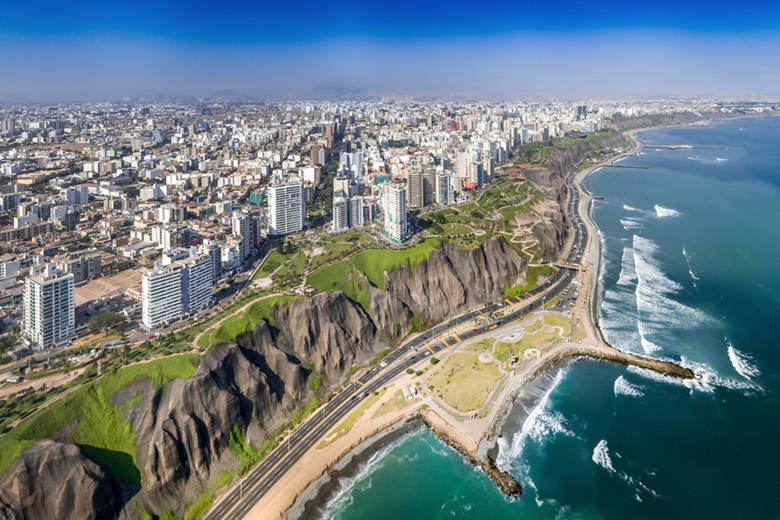STAR VI Conference

I would like to thank the Government of Peru and the organizers for the invitation to participate in the STAR Conference today. With regional trade at the very core of APEC's existence, security is a prerequisite to our success.
APEC members currently account for half of world trade, 41 per cent of world population and 55 per cent of world GDP. Home to both developed and developing economies in the Americas and Asia, APEC operates in the most dynamic economic region in the world and has experienced tremendous gains since its formation.
From 1994-2004, 195 million new jobs were created in the region including 174 million in lower-income economies, and 165 million people have been lifted out of poverty - a reduction of one third. Exports increased by 113 per cent, foreign direct investment by 210 per cent, and average tariffs across the region fell from 12 per cent in 1995 to 5.5 percent in 2004.
That a secure trading environment leads naturally to economic prosperity is assumed by APEC's overarching goal: that is, free and fair trade and investment across the region by 2010 for developed economies and by 2020 for developing economies. The movement of people and goods across the region is therefore critical to continued economic growth and development amongst all member economies.
In October 2002, APEC Leaders called for concrete measures to enhance secure and efficient trade. Four months later, in February 2003, the first APEC STAR Conference was held in Bangkok, Thailand. STAR - Secure Trade in the APEC Region - is one of APEC's key counter-terrorism priorities, protecting the flow of goods and people.
The Conference in Thailand directed the future of STAR activities, which would address maritime security, aviation security, passenger information processing technology, capacity building, project planning and financing as well as supply chain. It was agreed that to successfully counter threats to international supply chains would require a commitment between all stakeholders as well as capacity building. In fact, these two elements are critical today.
Factors such as escalating oil prices and climate change mean that attaining secure trade is a vital condition for the development of the Asia-Pacific region. Without a safe trading environment economic growth cannot be guaranteed and thus the benefits of globalization can not be ensured.
The importance of Public-Private Partnerships has become increasingly evident. Enhancing proactive partnerships is critical to the effective and efficient promotion of secured trade in the region.
Among other issues STAR Conferences have included steps to advance compliance with international ship and port security standards; progress in implementing business mobility initiatives, including; the development of a Regional Movement Alert System list; and cooperation for the issuance of machine readable travel documents.
Maritime and aviation security issues are also addressed. And outcomes of previous STAR Conferences include recommendations for member economies to continue fighting terrorism through collective and individual action and greater cooperative efforts with international organizations.
A platform for discussion of effective measures for secured trade while reducing transaction costs in the Asia Pacific Rim has been developed. The relationship between security, trade facilitation and the reduction of transaction costs for the business sector in the Asia Pacific region is critical. The private sector, in particular small and medium enterprises, should not be viewed simply as fund providers but as a partner in implementing security measures.
It is without a doubt that enhanced safety and security for people and cargo between APEC economies leads to increased costs. But the failure to act could eventually lead to costs that are even greater. The challenge is to design security systems which are based on appropriate risk management strategies, that are cost-effective and which deliver trade efficiencies. I would like to underline the need for governments to work with industry in order to meet such a challenge.
In May of this year, APEC Ministers Responsible for Trade in Arequipa, Peru reiterated their commitment to human security as an essential element in sustainable economic growth and prosperity of APEC economies.
In this context in July the Counter-Terrorism Task Force hosted the APEC Workshop on Trade Recovery Program. The Workshop examined the capacity of the Asia Pacific economies to respond to critical situations so as to ensure resumption of trade. And in August, the CTTF held a workshop on Effective Public Private Partnerships in Counter-Terrorism and Secure Trade and implemented an emergency network contact test.
APEC's work in counter-terrorism is a comprehensive one. It combines all the aspects of the fight against international terrorism. A variety of activities will be implemented this and next year, including the APEC Seminar on Securing Remittance and Cross Border Payments from Terrorist Use, a Workshop on Regulating the Non-Profit Organization Sector, a Workshop on Detecting and Deterring Cash Couriers and Bulk Cash Smugglers; and a Workshop on Aviation Security Audits.
Progress has also been made in the implementation of the United States? first Food Defense pilot project; and the initiative to upgrade the Protection of Critical Energy Infrastructure.
It is amid this momentum that this conference - "Security and Vulnerabilities of the Global Supply Chain" - is now carried out. Here we have three objectives. These are to:
It is amid this momentum that this conference - "Security and Vulnerabilities of the Global Supply Chain" - is now carried out. Here we have three objectives. These are to:
Reinforce APEC's secure trade agenda by identifying practical means to implement the mandate of Leaders' and Ministerial statements;
Identify ways of mitigating risks to secure trade, without compromising the flow of trade; and
Assess the impact of privatization of ports, airports and other infrastructures on security.
These are not simple objectives and the fruit of this labour will not be immediately visible. It might be observed that the most successful security initiatives leave no evidence at all. But the impact of secure trade will be seen in the long-term: in prosperous economies, where trade is robust and the business community engages without reservation.

